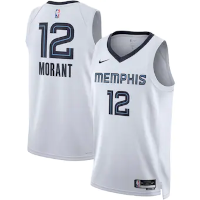To find the top players in NBA history that wore a particular number we must first look to the Hall of Fame to see which of the enshrined have played with this particular number. Here is a list of the NBA Number 15s that have been enshrined.
- Al Cervi
- Chuck Cooper
- Wayne Embry
- Tom Gola
- Hal Greer
- Richie Guerin
- Tom Heinsohn
- Bailey Howell
- Dick McGuire
- Sidney Moncrief
- Earl Monroe
- Lenny Wilkens
Bailey Howell's Legacy of Consistency ‣ The Silent Superstar
Bailey Howell wasn't the flashiest name in NBA history, but his impact on the game echoes through decades. A six-foot-seven power forward with a quiet demeanor and an unyielding commitment to excellence, Howell carved his legacy through sheer consistency and versatility.Emerging from Mississippi State as a unanimous All-American, Howell's journey began with the Detroit Pistons in 1959. There, he quickly established himself as a force, averaging a double-double in points and rebounds for his first six seasons. His smooth athleticism and precise shooting made him a scoring threat from anywhere on the court, while his defensive awareness and relentless hustle anchored the Pistons' back line.
His peak came in the 1960s, where he cemented his reputation as a champion and an All-Star regular. He moved to the Baltimore Bullets and later the Boston Celtics, playing alongside legends like Elgin Baylor and Bill Russell. While not the first scorer on the team, Howell was the glue, the dependable player who could be counted on for a solid performance night after night. His quiet leadership and unwavering work ethic earned him the respect of teammates and coaches alike.
His accolades speak for themselves: six All-Star appearances, two NBA championships, and even a brief stint as head coach of the Philadelphia 76ers. But statistics cannot fully capture Howell's essence. He wasn't flashy, didn't crave the spotlight, yet his consistency and professionalism made him a cornerstone of some of the league's most successful teams.
Tom Gola Basketball HOF Star
Tom Gola's basketball career was a whirlwind of dominance, heartbreak, and redemption. From his college reign at La Salle to his championship years with the Philadelphia Warriors, Gola's legacy shines as one of the NBA's most versatile and influential players.College Champion: He rose to national prominence at La Salle, leading them to the 1954 NCAA Championship and becoming the NCAA's all-time leading rebounder. His relentless hustle and offensive prowess earned him the nickname "Mr. All-Around," a testament to his complete skillset.
NBA Pioneer: Drafted by his hometown Philadelphia Warriors, Gola became a vital cog in their championship run in 1956. He embraced the then-controversial one-and-one style, paving the way for future free-throw masters. While overshadowed by Wilt Chamberlain, Gola remained a crucial playmaker and defensive stalwart throughout his 10-year career.
Missed Glory & Unfortunate End: Despite Gola's leadership, the Warriors couldn't overcome the Boston Celtics dynasty of the late 1950s, losing in the Finals multiple times. Injuries and conflicts with management marred his later years, culminating in a bittersweet retirement in 1966.
Beyond the Court: Gola's impact transcended the hardwood. He remained an influential figure in Philadelphia, coaching La Salle, serving as City Controller, and even running for mayor. His legacy inspires future generations of players and showcases the importance of versatility, grit, and fighting for hometown glory.
Tom Gola's story is a captivating blend of triumphs and challenges, reminding us that greatness isn't always measured by championships, but by the indelible mark a player leaves on the game and his community. He was a true "Mr. All-Around," not just on the court, but in his lasting impact on basketball and Philadelphia.
Chuck Cooper
Born September 29, 1926, in Pittsburgh, Pennsylvania, was Naismith Memorial Hall of Fame Forward Chuck Cooper. In 1950, this legend was drafted by the Boston Celtics in the second round of the 1950 NBA draft, becoming the first African-American player to be drafted by an NBA team.Cooper's rookie season with the Celtics was difficult. He was often subjected to racism and discrimination from fans and players alike. However, he persevered and played two seasons with the Celtics, averaging 6.3 points and 5.9 rebounds per game.
After leaving the Celtics, Cooper played for the Milwaukee Hawks and the Fort Wayne Pistons. He retired from the NBA in 1956.
Cooper's career was relatively short, but his impact on the NBA was significant. He paved the way for other African-American players to enter the league, and he helped to break down racial barriers in the sport.









